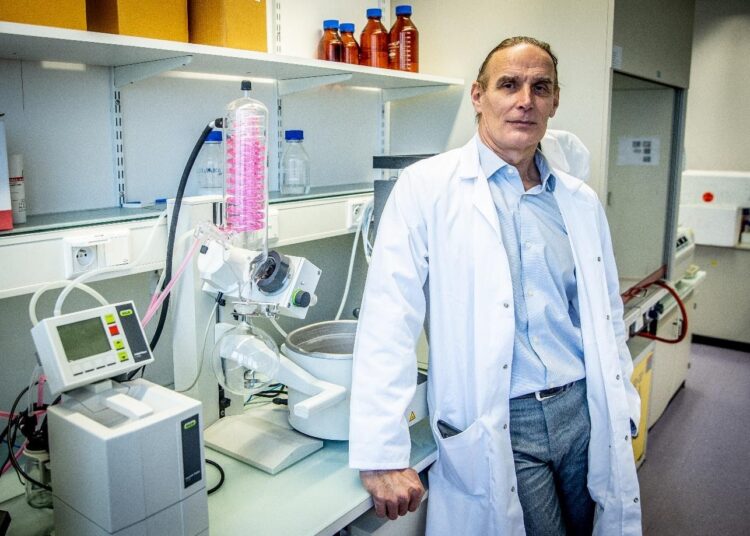Dr. Eric Leire, MD, MBA is the CEO and Founder of GenFlow Biosciences. He has an impressive background in biotechnology and gene therapy sector. Furthermore, Eric has a plethora of impressive experience both in the pharmaceutical industry, having held posts at Pfizer, Schering Plough and Pharmacia. He also has found success in academic research, having held research position at Harvard University.
In addition, his career has soared throughout the biotechnology industry, being the CEO of several private and public biotech companies. He is also the inventor of several patents and serves on the board of several biotechnology companies, such as Pherecydes (ALPHE.PA), Immunethep, Inhatarget and BSIM. Academically, Eric holds an MD from Grenoble University and an MBA from HEC, Paris and Kellogg, Northwestern University.
With biotech becoming somewhat of a buzzword across financial circles, technical experts such as Eric are becoming primordial to strong, health and business decisions across the globe. Readers need accurate, concise information to decipher what the science is truly getting at and how to get their head around difficult concepts. As a starter for ten, Biotechnology generally comprises of companies producing medicines from living organisms.
In recent years, biotechnology startups have sprouted alongside computer technology companies in Silicon Valley. The aim of most is to use biotechnology processes to create breakthrough drugs. According to some experts’ projections, by 2026, medical biotechnology alone will hit $500 billion.
We chatted to Eric about the key biological factors which contribute to ageing, the problem which GenFlow Biosciences is trying its best to combat.
The named “DNA damage theory of aging” proposes that aging is a consequence of unrepaired accumulation of naturally occurring damage. Damage in this context is a DNA alteration that has an abnormal structure. Although both mitochondrial and nuclear DNA damage can contribute to aging, with the latter being the main subject of this analysis. Nuclear DNA damage can contribute to aging either indirectly, by increasing apoptosis or cellular senescence, or directly by increasing cell dysfunction.
Under pressure of the challenge that DNA damage posed, living organisms evolved multiple highly advanced pathways of genome maintenance. Without such evolved conserved pathways, our cells could not survive the high frequency of DNA damage, which can be estimated in each cell at around 2 x 105 alterations per day.
Among the many genes involved in the maintenance of our DNA, Genflow focuses its research efforts on the SIRT6 gene. Both the histone deacetylase and ribosylation activities of SIRT6 explain its major role in maintenance of structure of our DNA. The SIRT6 gene has been clearly and repeatedly linked with an increased lifespan. By safely providing extra copies of a super version SIRT6 gene found in centenarian, Genflow expect to better correct the DNA damage and therefore to delay the age-related diseases and expand our maximum lifespan.
We look forward to seeing Eric and GenFlow’s progress over the next couple of exciting years!











